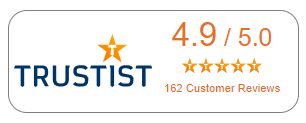Why do a level 3 Digital Support Technician Apprenticeship?
A Digital Support Technician is a key role in the digital workplace revolution! As an in-demand occupation, this apprenticeship gives you the opportunity to build a career path of your choice.
Whether you work in a large or small company, the public or private sector, organisations are looking to Digital Support Technicians right now, to accomplish their digital business goals. If you have a passion for digital technology, can solve problems and work under your own initiative, this career step is right for you.
Register now and build a career that makes an impact!

You only have to look at the employers who created this apprenticeship standard (Fujitsu, BT, NHS Digital, the Army, Navy, RAF) to realise that it’s in demand within top industries.
The demand for people with digital support technician skills to support and implement digital transformation is increasing. Similarly, organisations of all types are increasingly digitising their platforms and services - so you can take your pick of top industries.
The salary prospects in a Digital Support Technician role are excellent, with senior professionals earning an average of £47,105 to £65,783 per annum.
As a Digital Support Technician you could be diagnosing digital service gaps, implementing new technology and change projects. There is a huge variety of roles to choose from and no day will ever be the same!
If you decide to do this apprenticeship you can choose your path as a Digital Applications Technician or a Digital Service Technician.
Take a look at some of jobs and Digital Support Technician salaries this apprenticeship could lead to...

IT or Digital Support Officers come in all shapes and sizes (so to speak!) but the main goal of their work is to monitor and maintain computer systems and networks within an organisation.
This could involve working independently, as a contractor or within a technical support team of a large organisation. IT Support Officers have great analytical skills and a keen eye for detail, spotting errors, as they work at the heart of diagnosing crucial hardware and software faults or solving tricky digital problems.
What can you earn as an IT or Digital Support Officer? Starting salaries in digital support range from £17,000 to £23,000. Mid-range professionals can expect to earn between £26,000 to £35,000 while technical support managers can earn over £40,000.

The main responsibility of a database administrator is to maintain the performance, integrity and the security of databases. Your tasks could include planning, data analysis, reporting, managing projects, troubleshooting issues and developing databases.
What can you earn as a Database Administrator? Starting salaries for entry-level database administrators range from £22,000 to £25,000 a year. After some experience, you could earn around £35,000 to £45,000. And in senior roles, you could earn a salary of £60,000 or above.

Top level Digital Transformation Consultants utilise their wealth of experience to deliver digital transformation solutions for business and industry challenges. Digital Transformation Consultants build strategies for successful transformation and work with clients to address their digital needs.
What can you earn as a Digital Transformation Consultant? As this is a specialist role requiring significant experience, you could expect to earn between from £40,000 to £70,000 and above.
These are just a sample of the kind of jobs you could move into with Digital Support Technician Qualifications, but there are many more including:
For Digital Applications Technicians:
Digital Coach, Digital Transformation Associate; ICT Support Analyst, Digital Champion, Data Administrator, IT Operations Technician, Digital Applications Specialist and Digital Systems Operator.
For Digital Service Technicians:
Service Centre Operator, Digital Service Advisor, Digital Service Support, Digital Service Agent, Applications and On-line Service Executive, Technical Support Professional, Digital Support Professional and Operations Technical Specialist
Having a Digital Support Technician Apprenticeship is the first step in securing your ideal role in the tech industry, but what else do you need to make it in the tech world? Here are some important qualities you can develop and boost your Digital Support Technician resume...

As a professional Digital Technician you will often have to work independently to solve complex technical or digital problems. You will need to be motivated and able to maintain your own level of productivity.

The variety of problems you will be required to solve will be engaging and challenging. Therefore, you’ll need to be resilient and have a positive mental attitude to deal with complex situations. A calm and approach is required.

Digital problems require creative solutions! No matter what level you are, you’ll be required to use your initiative to solve all types of problems.

Digital Technicians need to be organised, focused and methodical. Being organisation is key when working through problems and finding solutions. Organisational skills also help you to prioritise work – making it easier to see the bigger picture.
Individual employers will set the selection criteria, including relevant qualifications and experience. The apprentice is likely to be required to demonstrate an aptitude for functional maths and competence in written and spoken English.
The duration of this apprenticeship is typically 15 months
Full-time apprentices will typically spend 15 months on-programme working towards the apprenticeship Standard, with a minimum of 20% off-the-job training. End-point assessment should only start once the employer is satisfied that the apprentice is consistently working at or above the level set out in the Standard.
10 weeks to cover the Core Knowledge and the Specialist Knowledge required for the multiple-choice exams taken as part of the End Point Assessment
A maximum of 12 weeks to complete:
- Knowledge Test – comprised of two Units – one on the core knowledge and one on the specialist knowledge.
- A Case Study Presentation and Interview– comprised of two parts:aCase Study giving the apprentice the opportunity to present a real-life Case Study that they have undertaken in the workplace followed by a structured interview with an independent assessor - assessing the knowledge, skills and behaviours.
All training fees are covered in full by the employer. An apprentice will never be asked or expected to fund their own training.
Apprentices under 19 years of age on the day of signup will receive 100% funding.
- Digital technologies: uses a range of digital office technologies, including collaborative tools, appropriately for internal and external communications, including, for example, office suites, conferencing facilities and mass email tools; survey tools; social media tools for business; SMS; live chat and video chat; web conferencing to support the delivery of services and to share information with customers and colleagues
- Data management: uses data systems effectively, appropriately and securely to meet business requirements and in line with organisational procedures and legislation
- Digital security: applies information security principles to information transfer, deletion, storage, usage and communications – using mobile devices where appropriate
- Digital services support: responds appropriately and effectively to internal or external enquiries; providing support and information using utilising digital channels where appropriate and responding according to organisation protocols
- Digital Information Management Systems: operates a range of digital information systems and tools to maintain information and to support service delivery, whether Client Management Systems (CMS), Customer Relationship Management systems (CRM), finance or human systems or other bespoke digital systems or databases. This includes searching, storing, integrating and organising data; data entry and maintenance; data modelling; relationship modelling and data analysis to identify trends and insights
- Communication: communicates effectively in writing, verbally and face to face appropriately through different digital channels, including e-mail, telephone and collaborative technologies, including digital specialists and others, using technical terminology and non-technical terminology as appropriate, whether for internal or external communication
- Digital learning: studies using digital resources to extend knowledge and skills in the use of new digital systems or features and other skills
- Organisational policies and standards: operates in line with organisational polices, standards, legislation, professional ethics, privacy and confidentiality and knows where to source these and when and how to escalate any issues
- Thinking skills: thinks logically and creatively to resolve digital problems
- Business and decision-making skills: demonstrates an understanding of the organisational impact of decisions that they take
- Continuous improvement: effectively uses complex management information systems to drive productivity and performance of self and department, whilst proactively looking for ways to develop digital systems and processes to drive efficiency
- Teamwork: competently uses digital technologies to operate effectively as part of a team, and with other stakeholders, enabling sharing of information and best practice
- Work environment: maintains a productive, professional and secure working environment
Option 1 – Digital Applications Technician
- Digital Technologies: applies sophisticated digital technologies effectively to achieve objectives
- Information Systems: monitors and operates complex information systems
- Digital Implementation: supports digital operations and/or digital change and transformation by championing and demonstrating best practices
- Digital problem solving: identifies and resolves digital problems independently for self and colleagues to maintain productivity and improve quality of service
- Digital skills support: coaches and guides less experienced colleagues to develop their digital skills and to use digital systems effectively
- Productivity software: uses a range of digital applications appropriate to the role to create, update, edit, manage, analyse and present data and information
- Working with colleagues: works with internal colleagues across the organisation – whether digital specialists or otherwise
Option 2 – Digital Service Technician
- Customer service: helps customers and clients register for and access information, products and services through online digital channels and represents the organisations brand through digital channels
- Digital problem solving: diagnoses and resolves customers and client’s problems with accessing and using digital technologies and applies the organisation’s diagnostic processes for fault finding escalating and reporting problems with the digital technologies, using content management systems as appropriate
- Software applications and operating systems: installs and configures software on to end-user devices, including operating systems and applications and demonstrates deployment of software applications and operating systems remotely
- Multi-tasking: applies excellent multi-tasking capability to be able to capture information at a conversational pace whilst navigating numerous systems
- Customer service: takes responsibility for customer service and uses diagnostic tools and digital systems to manage external end-user dissatisfaction through to resolution
- Business skills: demonstrates first point resolution whilst balancing customer and business needs to secure the appropriate solution
- Working with customers: works with a very wide range of customers and external users – from a wide variety of backgrounds, with a wide variety of needs and with a wide variety of digital competence, including dealing with difficult and challenging situations
- the most common digital office technologies, including collaborative tools, that are used by organisations for internal and external communications and best working practices
- modern digital infrastructure, including computer systems fundamentals including physical, virtual and cloud; physical systems including hardware peripherals; operating software and software devices; servers; the internet of things; networking fundamentals; virtualisation technologies and cloud
- the importance of and the technologies for backing up data securely
- how to apply the processes and procedures for the secure handling of data
- the concepts and fundamentals of data, including searching, storing, integrating and organising data; how organisations use various types of data; the key features and functions of information systems; data formats and their importance for analysis; data entry and maintenance; visualisation and presentation of data; data modelling; relationship modelling and data analysis to identify trends and insights
- the organisational importance of information security and its management including following policies and procedures and key legislative requirements
- the major types of threats and risk that apply to any organisation with a working understanding of those that apply to their role and the associated best practice for their own secure working
- operational aspects of risk including maintaining steady state/business as usual security principals for individuals and systems including personal data, access, identity management, encryption and passwords
- the individual and company risks, responsibilities and requirements in relation to legislation, professional ethics, privacy and confidentiality and the implications for their role
- the principles behind an organisation’s digital presence and delivery and the techniques required to maintain this and how to represent and safeguard the brand and reputation in relation to the digital offer
- how best to communicate using the different digital communication channels and how to adapt appropriately to different audiences
- the limitations and extent of the internet to be able to connect to, research, locate and access information securely
- how to plan and organise own learning activities to maintain and develop digital skills
- the importance of effective time management and the need to prioritise effectively
- the need for continuous improvement with the application and use of digital technologies and how this benefits the organisation
- awareness of current, emerging and fringe digital technologies and the implications for work
Option 1 – Digital Applications Technician
Understands
- the most common productivity software applications used to create, update, edit, manage, analyse and present data and information and best working practices
- the main features and benefits of digital information systems and how these are used to maintain information and to support service delivery and best working practices
- the basic working practices for productive use and maintenance of business hardware, software and networks
- agile methodologies and work practices, Continuous Innovation with Continuous Development (CIDC)
- how organisations incorporate digital technologies into key business functions, such as finance, sales and marketing, operations and HR and the implications for their role
- how to assist with digital operations and digital change projects
- how to train and support internal colleagues to make the best use of the organisation’s technology-based productivity tools.
- the features and key differences between different data storage systems including the Cloud and databases
Option 2 – Digital Service Technician
Understands
- how to use databases, CRM packages, content management systems, office systems, web technologies; e mail and mass e mail tools, SMS, live chat, video chat and messaging platforms; survey tools; social media tools for business; and other collaborative tools, including web conferencing
- the importance of and the key principles and features of processes for diagnosing users’ digital problems
- end-user systems; operating systems; application types and deployment methods; support processes such as password management, access control and connection to remote resources; version management, including patching; mobile device management including segregation of provide and business use; and software licenses and approved software
- the processes and principles of content management systems to identify and resolve uses’ digital problems
- how best to communicate to different users though digital channels and how to adapt appropriate to different audiences
- what is meant by a CRM system, how to use it for accessing and maintaining the customers’ digital information and the contribution of CRM to an organisations performance and customer service
- sales and customer service support processes, and their role within it including in relation to digital impact and possible damage to brand reputation
- how the organisation’s legal and ethical position fits with organisational needs and customer expectations
- the key features and importance of escalation and reporting procedures when dealing with users’ digital problems
- how to coach and support a wide variety of external users to help them make the best use of digital technologies to access information, services or products and conduct transactions
- Works independently and takes responsibility maintains productive and professional working environment with secure working practices
- Uses own initiative when implementing digital technologies and when finding solutions
- Resilient and positive mental attitude when dealing with difficult situations
- Maintains thorough and organised approach to work when working with digital technologies and prioritising as appropriate
Those completing the Digital Support Technician apprenticeship will be recognised for entry onto the BCS, the Chartered Institute for IT, Register of IT Technicians confirming SFIA level 3 professional competence. Those completing the apprenticeship can apply for registration.
Register Your Interest
If you would like to apply for this apprenticeship or you have any more questions about completing the Digital Support Technician Standard, please contact us.
t: 01270 500 102
e: apprenticeships@escalla.co.uk


